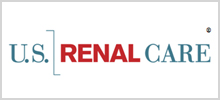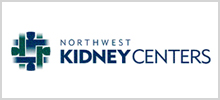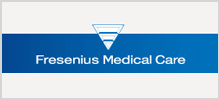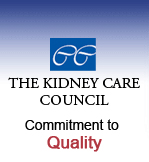For Immediate Release Contact: Cherilyn Cepriano, KCC Executive Director ccepriano@kidneycarecouncil.org
(202) 744-2124
Kidney Care Council Statement on the End Stage Renal Disease
Prospective Payment System Proposed Rule
Cuts to Dialysis Medicare Reimbursement Put Care of Most Vulnerable
Patients in a Developing Payment System at Risk
Washington, DC (July 1, 2013) – The Kidney Care Council (KCC), the nation’s largest association of dialysis providers, representing facilities of all sizes, geographies and ownership types, is deeply concerned by proposed cuts to funding for dialysis care published today by the Centers for Medicare & Medicaid Services (CMS) in the Medicare end-stage renal disease (ESRD) prospective payment system (PPS) proposed rule. More than 85 percent of patients with kidney failure rely on Medicare to receive these treatments and such significant cuts as those set forth in the proposed rule threaten to disrupt the economic stability of the kidney care.
“Dialysis providers are proud that CMS’ claims-based data have shown that the quality of care we provide to our patients has not only been maintained under the new and cost-effective payment system, but has improved, said Tom Weinberg, KCC Chairman. “Hospitalizations, adverse cardiac events, catheter placement, and mortality have been on the decline even after the implementation of the new PPS payment model. The deep cuts proposed today will jeopardize this progress.”
“Adequate Medicare reimbursement is not optional for dialysis facilities,” said KCC Executive Director Cherilyn Cepriano. “Medicare barely covers the cost of care for most dialysis facilities and, in fact, nearly 35 percent of dialysis facilities across the country operate with negative Medicare margins according to the most recently available cost report data. Because more than 85 percent of our patients are Medicare beneficiaries, of which 40 percent are dually eligible for Medicaid, any reduction in Medicare reimbursement will have a dramatic and negative impact on our already fragile payment system. Cuts of the size proposed by CMS put access to care for the most vulnerable patients in urban and rural areas at risk.”
While the American Taxpayer Relief Act of 2012 (ATRA) called on CMS to adjust payments under the ESRD PPS to reflect utilization decreases in certain drugs, ATRA does not mitigate CMS’ responsibility under the Social Security Act (SSA) to establish a payment amount that covers the cost of care and to review all elements of costs of providing care when determining an equitable payment rate for providers. By proposing to set payments below the cost of care for a large percentage of the providers of dialysis care in the U.S., CMS’ proposal jeopardizes the availability of access to continued high quality care and patient care improvements. In some cases, the cuts could lead to facility contraction or closure.
“Dialysis providers have been good partners with Medicare over several decades, including strong support for bundling payment and for creating the innovative prospective payment system and quality incentive program in place today,” said Tom Weinberg, KCC Chairman. “We believe CMS proposes to cut too deeply into the ESRD program, a program which provides essential, life-saving care. KCC plans to work closely with CMS, Congress, and the kidney community to advocate for appropriate reimbursement in the Agency’s final rule.”
###
KCC is a nonprofit national health care association based outside of Washington, D.C. and comprised of eleven of the leading kidney dialysis provider companies in the United States. Collectively, the KCC members provide End Stage Renal Disease (ESRD) services to more than 85 percent of the dialysis patients in the United States. The membership includes large, small, nonprofit and for-profit provider companies.





